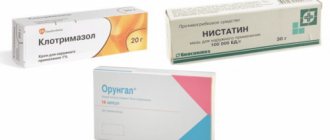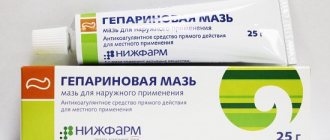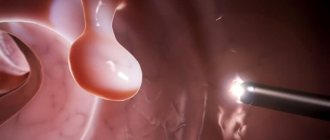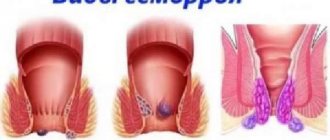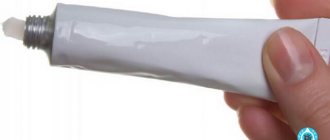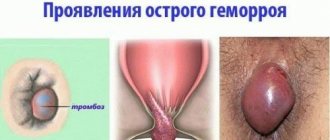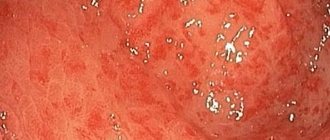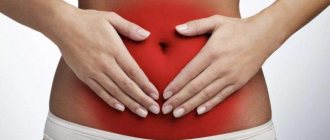Anal itching is a fairly common condition in which a person suffers from persistent itching in the anus. Many suffer from itching in the anus for almost years, embarrassed to see a doctor or not knowing which specialist can help in this case.
MedicCity proctologists are specialists who will help you with any proctological problems and diseases, be it itching in the anus or hemorrhoids, paraproctitis and fistula. There are no “frivolous” or “unimportant” problems when it comes to your health! Be sure to consult a doctor if you are concerned about any symptoms of proctological diseases!
1 Consultation with a proctologist
2 Consultation with a proctologist
3 Consultation with a proctologist
Types of anal itching
In proctology, a distinction is made between primary and secondary anal itching.
Primary anal itching is an itching for which scientists have not yet identified any apparent causes.
Secondary anal itching may appear as one of the symptoms of some diseases. For example, a similar condition may accompany the following diseases:
- haemorrhoids;
- chronic anal fissure;
- helminthic infestation;
- proctitis, proctosigmoiditis and other intestinal diseases;
- inflammatory diseases of the intimate area;
- fungal infection of the anal area and perineum;
- burn or mechanical injury to the anus (for example, if there is a foreign body in the intestine).
Factors influencing the appearance of hemorrhoids
There are a number of subjective points that can lead to discomfort in the anal area. Itching appears when:
- eating too fatty and spicy foods;
- smoking and drinking alcoholic beverages;
- reduced physical activity;
- depression, stress;
- excessive physical activity.
All of these factors can aggravate a person’s condition during hemorrhoids. So, for example, if the patient sits or lies all the time (at work and at home), then blood circulation in the pelvic area is disrupted, which can provoke the formation of hemorrhoids and all the symptoms that accompany it, including itching.
Discomfort in the anal canal area will also become a “reward” if basic hygiene standards are not observed - using rough toilet paper, rarely taking a shower or bath. Careful removal of feces, treating the anus with water and a special detergent is a kind of treatment and prevention that every person can do daily.
A diet that excludes salty, spicy, smoked foods and alcohol will help our “delicate area” not become the object of a constant feeling of itching.
If you have hemorrhoids, a person should try to avoid both strong physical exertion and powerful emotional shocks, because both of these factors adversely affect the course of the disease, leading to its exacerbation.
What diseases cause anal itching?
Anal itching may be accompanied by the following diseases:
- proctological direction (proctitis and proctosigmoiditis, hemorrhoids, chronic paraproctitis, cryptitis, insufficiency (incontinence) of the anal sphincter);
- gynecological direction (PID);
- viral direction (genital warts);
- fungal diseases (actinomycosis, thrush);
- bacterial diseases (helminthic infestations, pubic lice, scabies);
- skin diseases (psoriasis, seborrhea, inflammation of the sweat glands, atopic dermatitis, eczema, lichen planus);
- diseases with metabolic disorders (diabetes mellitus, liver failure, pancreatitis).
Intestinal diseases
Intestinal pathologies are the most common cause of anal scabies. Diseases of the lower gastrointestinal tract include:
- hemorrhoids external/internal;
- genital condylomas;
- cracks and mechanical damage;
- oncological tumors.
With pathologies of the rectum, the symptoms will be constant and increasing. In addition to itching, sharp stabbing pains that intensify in a sitting position and when going to the toilet can be bothersome.
Symptoms of itching in the anus
Incessant itching in the anus at night - what could be worse? A person may experience insomnia, nervousness, and depression. The skin around the anus becomes rough, covered with abrasions, and begins to bleed. If deep abrasions become infected, inflammation may begin.
Acute anal itching usually begins unexpectedly and abruptly. Maceration (wetting of the skin), irritation, and scratching appear in the anal area.
Chronic anal itching may begin unnoticed but becomes worse over time. The skin around the anus becomes dry and inflamed. There may be no characteristic pigmentation. Usually, with chronic anal itching, scratching does not occur.
Prolonged anal itching can lead to bacterial infection of the skin, the appearance of eczema, and the wounds begin to hurt and bleed. Therefore, it is better to come for a consultation with a MedicCity proctologist at the first symptoms and under no circumstances self-medicate! After all, such itching is usually a kind of “bell”, a sign of the presence of serious diseases in the body.
1 Preparation for anoscopy
2 AMI HAL-Doppler II - device for the treatment of hemorrhoids
3 Preparation for anoscopy
Manifestations by age and gender
Anal itching in men is most often a sign of hemorrhoids, gastrointestinal diseases, prostatitis, urethritis, sexually transmitted diseases, poor hygiene and nutrition.
Anal itching in women, in addition to common causes for both sexes, can be caused by thrush, peculiarities of menopause, and inflammation of the pelvic organs.
The most common cause of anal itching in a child is poor hygiene and helminthiasis. In the first case, it is enough to be attentive to the care of the child or teach him to take care of himself; in the second case, treatment will take a longer time. The cause of helminthiasis in children can be pets, insufficiently processed food, and constant exposure to unsanitary conditions.
In children, this phenomenon can also be a symptom of diabetes, allergic reactions, stress and phobias, a consequence of excess weight, taking certain antibiotics with subsequent fungal infection.
With age, the risk of diseases that are accompanied by itching in the anal area increases, so this symptom is more common in adult patients in medical institutions. The primary form, the cause of which cannot be diagnosed, is also more often observed in older people due to irreversible processes occurring in the body, including thinning of the skin and its increased tendency to irritation.
In any case, self-medication with various ointments and baths is contraindicated. Local therapy will not help if the cause of itching is a systemic, infectious, inflammatory or other disease.
The sooner you seek professional medical help, putting aside false shame, the greater the likelihood that the treatment will proceed quickly and successfully, without complications, including purulent skin lesions due to constant scratching and infection, the possibility of anal fissures, and inflammatory processes in the tissues of the anus, fistulas. Severe psychological conditions caused by this symptom are common. Specialists from NEARMEDIC multidisciplinary medical centers will help you get rid of these problems and improve the quality of your life.
Causes of anal itching
Causes of anal itching can be:
- lack of personal hygiene;
- excessive passion for water procedures;
- excessive dry skin in old age;
- increased skin moisture as a result of increased sweating of the skin or frequent bowel movements;
- using a hard washcloth, hard soap and rough toilet paper;
- the use of certain medications, hemorrhoid remedies, gels, ointments and birth control suppositories;
- frequent inclusion of hot and spicy foods in the diet;
- depilation of hair in the anal area.
Anal itching can appear as a consequence of neurosis ( neurogenic anal itching) or after taking medications ( iatrogenic anal itching) .
The appearance of idiopathic anal itching is associated with a decrease in the contractile function of the sphincter and skin irritation due to mucus released from the rectum.
Manifestations
Itching during hemorrhoids manifests itself in different ways. This can be a debilitating and persistent feeling that makes you want to scratch the entire area around your anus. In this situation, a person is ready for any way to get rid of a negative feeling, especially if he leads an active lifestyle - works or studies, attends various cultural events, plays sports, etc.
Sometimes itching can come in waves, after defecation or after lifting heavy objects, as well as with abuse of alcoholic beverages or chronic constipation.
There are periods, usually associated with remission of the disease, when the itching is not felt at all. Treatment and hygiene can also relieve the discomfort.
Diagnosis of anal itching
Diagnostic examination includes the following methods:
- examination of the perianal area (pay attention to the presence of scratching);
- finger examination;
- endoscopic examination of the colon (sigmoidoscopy and colonoscopy);
- immunological blood test.
1 Diagnosis of anal itching
2 Colonoscope
3 Immunological blood test
When diagnosing the disease, it is necessary to take into account such factors as the connection of itching with defecation and the nature of stool, compliance with hygiene measures, nutrition (for example, spicy food, alcohol, etc.). Harmful environmental factors (humidity) also play an important role.
Diagnosis and treatment
During the diagnostic process, the proctologist takes into account what the patient complains about and general symptoms. Establishes the relationship between itching and the process of defecation, the use of alcohol, spicy spices and spicy foods, as well as when the unpleasant sensations occurred, their duration and strength. If there are no other symptoms, the doctor notes a secondary type of disease and expands the scope of the examination in order to identify the underlying pathology.
Tools and techniques include:
- taking a scraping;
- stool analysis for oviworm;
- examination by a gynecologist and smear collection;
- bacterial analysis of stool (if stool is abnormal);
- rectal examination;
- irrigoscopy, colonoscopy;
- blood analysis;
- sphincteromanometry;
- gastroscopy;
- Abdominal ultrasound (as well as prostate ultrasound for male patients).
Treatment process
the illness may be accompanied by some difficulties and take a long time, especially if anal itching accompanies the underlying disease. A key step in the therapeutic strategy is to find out why the anal itching occurs. Topical medications in the form of ointments and enemas can relieve discomfort. The secondary form of itching causes the elimination of the main pathology. If a fungus is detected, the patient is prescribed fungicides and antibiotics. Helminthic infestation requires taking an anthelmintic.
Treatment of anal itching
Treatment of anal itching is aimed at eliminating the underlying cause of the disease.
If the disease is infectious, the doctor may prescribe antibiotics for treatment. If it is a fungal infection, fungicidal medications may be prescribed. If anal itching is detected due to infection with worms, then anthelmintic medications are used.
For diseases of the large intestine, a full course of long-term treatment may be required.
Itching of the anus can also be observed in such serious diseases as syphilis, diabetes mellitus, cirrhosis of the liver, hepatitis, then treatment can be long and lengthy.
For local treatment, special ointments and microenemas containing a 3% solution of protargol or collargol, oils, and herbal decoctions can be used.
In order to relieve constant itching, burning, and pain, physiotherapeutic methods are used.
If it is not possible to find the true cause of the disease, then sedatives, limiting alcoholic and carbonated drinks, coffee, tea, citrus fruits, chocolate, and hot spices are prescribed.
Reason 2. Diaper rash
During the hot season, children actively play, run and sweat, so diaper rash may occur. If you do not give your child water treatments once a day, this will lead to irritation of the skin in delicate places, and the perineal area is no exception. Therefore, the child may experience slight itching. But, most often, small children suffer from diaper rash and have not yet stopped wearing diapers; therefore, they develop so-called diaper dermatitis, which is accompanied by itching (this can be noticed by the baby’s anxiety and constant crying).
How does the treatment work?
To get rid of itching in the anus, the parent needs to regularly wash the baby with a herbal decoction every time after a bowel movement. Next, it is recommended to free the skin from the effects of the diaper, and for older children - from the effects of uncomfortable underwear.
When choosing underwear for a child, it is recommended to buy only cotton fabrics.
Local treatment cannot be ruled out: Triderm, Zinc ointment, Bepanten.
There are other remedies that can help eliminate dermatitis and irritation that causes itching, but in any case, consult a doctor.
Prevention of itching in the anus
In case of a true disease, treatment is conservative, long-term and often requires the participation of not only a coloproctologist, but also a gastroenterologist, psychotherapist and other specialists. Injection methods for treating anal itching, for example, tattooing and others, are also used in world practice.
In our clinic, anal itching is treated with medication. On the recommendation of a coloproctologist, you may be prescribed tablets, suppositories, medical procedures, and therapeutic microenemas.
Sharp pain in the lower abdomen, radiating to the anus
Quite often, women encounter this type of pain in the middle of the menstrual cycle. The pain occurs due to the rupture of the follicle when the egg is released. The process is accompanied by a local increase in temperature in the ovaries, which further aggravates the discomfort. But these are natural processes that do not cause concern.
Similar pain occurs during menstruation. It can be very pronounced and quite long (up to two days). You should not take painkillers or hormonal medications on your own - it is better to contact a supervising gynecologist to prescribe antispasmodics.
But pain in the lower abdomen may also indicate pathologies:
- inflammation and accumulation of fluid in the retrouterine area;
- adhesions affecting the reproductive organs;
- ovarian cyst;
- ectopic pregnancy.
If sharp pain occurs in men, it may be caused by inflammation of the appendix. Along with the pain, nausea, general weakness, and heart rhythm disturbances occur. But sometimes painful sensations in the abdomen are caused by ordinary constipation and flatulence. However, if a person regularly experiences indigestion or suffers from regular constipation, this may be a sign of a serious pathology. It is worth making an appointment with a gastroenterologist or proctologist.
